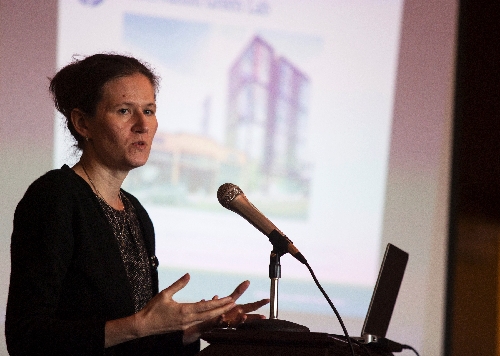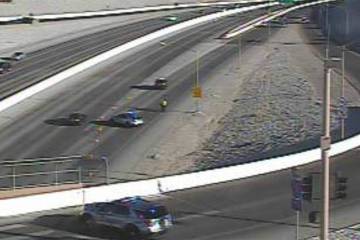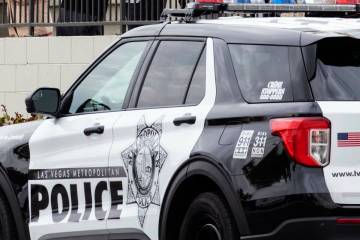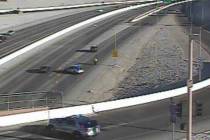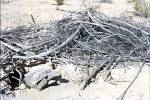Las Vegas symposium focuses on sense of place
They came from all over - San Francisco, Seattle, Portland, Ore., Kansas City, Mo., Pittsburgh, Reno, Las Vegas.
They came armed with tales on how they saved a house, a business, or how they preserved a sense of place in an increasingly complicated 21st century, with odds stacked against them.
They were professors, environmental historians, historical preservationists. They were sociologists who study urban living and how it mixes with the surrounding nature. In short, they were a crowd dedicated to preservation and conservation.
It was a symposium put on Saturday by the University of Nevada, Las Vegas-based Preserve Nevada, a sort of trade show in its own right. Held inside the Nevada State Museum at the Springs Preserve, the one-day event was a success, say its organizers, because it gave everybody a chance to tell stories about their own cities and towns.
And the brainstorming session all happened in Las Vegas, a gambling city that, contrary to outside public opinion, has a historical past in the facades that dot the city. You just have to be aware of it.
"The idea that Las Vegas doesn't have a history because part of it is always being torn down or built up isn't true," said Andrew Kirk, director of Preserve Nevada, whose mission is to promote and foster careful stewardship and conservancy of the city's cultural resources. "And you don't have to dig deep either to find it. It's sitting in the old part of town, in all the old casinos there. The bones are there. You just have to look under the shell to see what you can find."
Not only does Las Vegas have a past that has been preserved, it's also a city that has made great connections - from neon to nature. Alan O'Neill, former executive director of Outside Las Vegas, explains how more than 1,000 miles of multi-use trails serve as beautiful bridges from the grime of the city to the fabulous host of federal lands. That's 396 trails that have cropped up in the past seven years, the result of $400 million made available from the Southern Nevada Public Land Management Act.
"This notion that Las Vegas is just a place to party is long past. It's a place to hike and bike and take advantage of nature and the beautiful surroundings," he said.
In fact, Las Vegas is second only to Portland, Ore., in the number of miles in bike lanes that it has, according to Tom Perrigo, chief sustainability officer for the city of Las Vegas.
"We're shy something like 10 or 11 miles compared to Portland," he said of the 140 total miles of bike lanes in Las Vegas. "And by bike lanes, we're talking about the painted lines that bikers have to bike within and which motorists have to pay attention to."
And just how green and sustainable is Las Vegas? According to Perrigo, roughly $65 million has been pumped into the city's landscape since 2007 in various solar power projects and more environmentally sensitive public lighting in a big city of bright lights.
Only Denver and Austin, Texas, have invested in as much green energy as Las Vegas, he said.
"I think it's important to get the message out that Vegas is becoming a great American city that's investing in sustainability," Perrigo said.
The idea of the symposium was to exchange ideas and to give Las Vegas preservationists a fresh perspective as seen from others who are in town visiting, Kirk said.
John Herron, an associate professor of environmental history at the University of Missouri at Kansas City, said he admired the attempts of Las Vegas to go green. He also said the city, by the very nature of its location, has its work cut out for it.
"That doesn't deny the basic reality that there are 2 million people living in the desert, and that water is a big issue," he said. "And it's going to become an even bigger issue as the city grows ."
Herron walked the audience through the uniqueness of Kansas City in a humorous manner. During the 1950s, a group of sociologists picked it as a model city to study because it wasn't too big, like Chicago, wasn't too small, like Omaha, and wasn't too industry-dependent, like Detroit and the auto industry.
Since the study, many Kansas City residents have concluded that "What happens in Kansas City doesn't stay in Kansas City because it doesn't really matter," he said.
Contact reporter Tom Ragan at tragan@reviewjournal.com or 702-224-5512.




